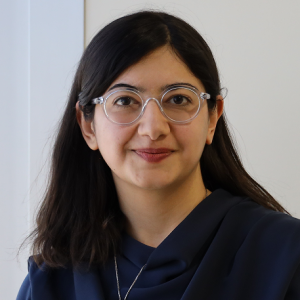
Fateme Rajabiyazdi
Assistant Professor, Department of Systems and Computer Engineering and School of Information Technology, Carleton University
Biography
Dr. Fateme Rajabiyazdi is an Assistant Professor at the Department of Systems and Computer Engineering, cross-appointed with the School of Information Technology at Carleton University and an Affiliate Investigator at the Bruyère Research Institute. In 2023, she was awarded the Canadian Medical and Biological Engineering Society (CMBES) Early Career Researcher Award. Before joining Carleton, she was a postdoctoral researcher at McGill University, where she received the FRQS Postdoctoral Scholarship Award. She received her Ph.D. in Computer Science from the University of Calgary in 2018. Her research is at the intersection of information visualization and human-computer interaction. In particular, her research aims to develop innovative technologies and data visualization tools to empower patients to self-manage their care and establish data-driven communication with their caregivers and healthcare providers.
Abstract: Patient health data needs to be discussed between patients and clinicians to make treatment decisions, inform lifestyle changes and improve care management. Sharing this data is necessary to allow for the simultaneous review of, interaction with, and manipulation of the data. However, there is a lack of meaningful collaboration and appropriate technological tools to enable close interactions between the clinical team and patients. Standard technological devices (i.e., a computer, a desktop monitor) and systems (i.e., electronic health records) that are available in clinics do not have the capabilities to facilitate a patient’s view or understanding of the data, nor interactions with their data. As a result, patients are not empowered to share health responsibilities with clinicians to discuss and make clinical care decisions. In this talk, I will discuss our progress in designing innovative technological data-centric systems displaying patient health data on shared surfaces to empower patient-clinician interaction using an iterative people-centred method.